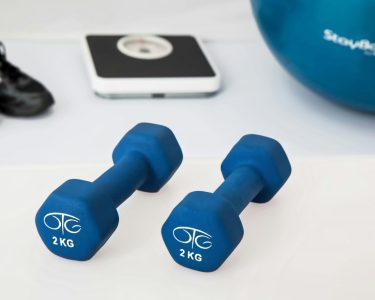Are you looking for a way to boost your mental health and overall well-being? Look no further than physical activity! As it turns out, the benefits of getting up and moving extend far beyond just improving our physical fitness. In this blog post, we’ll explore just how regular exercise can help us develop a healthier mind as well as body. From reducing stress levels to boosting self-esteem, there are plenty of reasons why adding more movement into your daily routine is worth considering. So let’s dive in and discover all the ways that staying active can contribute to a happier, more balanced life!
The Relationship Between Physical Activity and Mental Health
It’s no secret that exercise is good for your physical health. But did you know that it can also have a profound effect on your mental health?
A growing body of research is beginning to show that regular physical activity can be an effective treatment for depression, anxiety, and other mental health conditions. In fact, exercise may be just as effective as medication in some cases.
So how does physical activity improve mental health? One theory is that it helps to release feel-good chemicals in the brain called endorphins. Endorphins are associated with reduced stress and improved mood.
Physical activity has also been shown to increase levels of serotonin, another chemical that plays a role in mood regulation. Exercise has also been linked to improved sleep quality, which can further reduce stress and promote better mental health.
The Mental Health Benefits of Physical Activity
Research has shown that there are many mental health benefits to being physically active. Regular physical activity can help to reduce stress, anxiety, and depression. It can also help to improve mood, sleep, and self-esteem. Physical activity can also help to increase energy levels and concentration.
There are many ways to be physically active, and it does not have to be strenuous. Anything that gets you moving and your heart rate up can be beneficial. Some examples of physical activity include walking, jogging, biking, swimming, dancing, and gardening. Just 30 minutes of moderate-intensity physical activity a day is all it takes to start seeing the mental health benefits.
The Different Types of Physical Activity
There are many different types of physical activity, each with its own benefits for mental health. aerobic exercise is any type of activity that increases your heart rate and breathing, such as walking, running, biking, or swimming. Regular aerobic exercise has been shown to decrease anxiety and depression, and improve mood and cognitive function.
resistance training is another type of physical activity that can improve mental health. This type of exercise includes lifting weights or using resistance bands to work your muscles against resistance. Resistance training has been shown to help reduce stress and anxiety, and improve mood and sleep quality.
lastly, mind-body exercises like yoga and tai chi are also great for mental health. These exercises combine physical activity with breathing control and meditation, which can help to decrease stress levels and promote relaxation.
How Much Physical Activity is Needed to Improve Mental Health?
It is often said that a healthy body equals a healthy mind. This adage rings especially true when it comes to the connection between physical activity and mental health. Research shows that even moderate amounts of exercise can have a positive impact on mental well-being.
For example, one study found that just 30 minutes of moderate-intensity exercise (such as walking) three times per week was enough to significantly reduce symptoms of depression in adults aged 65 and older. Other research has shown that regular physical activity can help to improve mood, sleep quality, and cognitive function in people with anxiety disorders.
So, how much physical activity is needed to see a benefit for mental health? The answer may vary depending on the individual, but most experts agree that even small amounts of exercise can make a difference. For instance, the U.S. Centers for Disease Control and Prevention (CDC) recommends at least 150 minutes of moderate-intensity aerobic activity (such as brisk walking) every week for adults – which equates to about 20 minutes per day.
Of course, some people may need more than this minimum amount to see an improvement in their mental health symptoms. And there’s no need to go overboard – too much exercise can actually have negative effects on mental well-being, so it’s important to find what works best for you. If you’re not sure where to start, speak to your doctor or a qualified fitness professional who can help you create an appropriate
The Best Time of Day to Exercise for Mental Health
There is no one-size-fits-all answer to the question of what time of day is best to exercise for mental health. It depends on a variety of factors, including your natural sleep pattern, work schedule, and energy levels.
That said, there are certain times of day that tend to be more effective than others for mental health benefits. Morning exercise has been shown to improve mood and energy levels throughout the day. Exercise in the afternoon can help relieve stress and improve focus. And evening exercise can promote better sleep.
Ultimately, the best time of day to exercise for mental health is whatever time works best for you. If you have trouble sticking to a regular workout routine, try different times of day until you find one that fits your schedule and makes you feel good.
Conclusion
Physical activity is an important part of maintaining both physical and mental health. Regular exercise can help reduce stress, improve mood, increase self-esteem and even increase cognitive function. It’s never too late to start incorporating physical activity into your daily routine – the benefits are myriad! So next time you’re feeling down or stressed out, grab a pair of sneakers and get moving – it may just be the pick-me-up you need.




